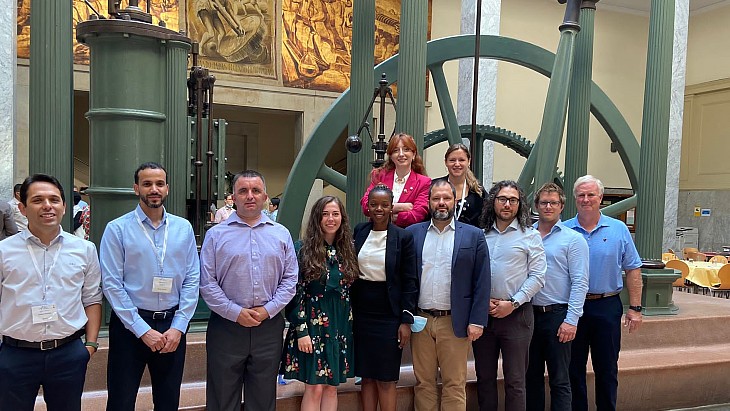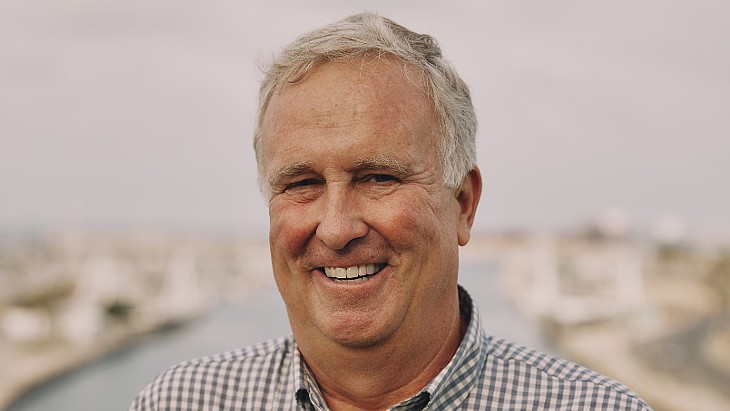My involvement with the World Nuclear University (WNU) Summer Institute dates back to lectures I gave on the nuclear fuel cycle when the Summer Institute was held at Oxford University. I was always impressed by the overall programme with wide-ranging topics from every facet of the nuclear power industry. I also marvelled at the diversity of the WNU fellows - from engineers to lawyers to scientists to regulators.
During my lecture, the questions could come from any direction and, the chances were, someone in the room knew my subject very well. I would generally stay for two days, sit through other talks, run my own session, then take a group of fellows out for dinner in the evening. The dinners were always fascinating because the conversations would wander everywhere. Of course, lots of questions were asked about my background and career, but the fun part was getting the fellows to talk about their work and goals. They made me remember my early days of finding my way in the nuclear world.
For those not familiar with it, the Summer Institute is an intense five-week course for future leaders in the nuclear industry from all around the world. Topics range from the nuclear fuel cycle to safety and security to advanced reactors to communications, and the curriculum is carefully constructed to bring all of the fellows to a common level of knowledge of the most important issues facing our industry. While each day is unique, a typical day starts with industry experts talking about their special subject. The lectures are designed to be interactive and participatory. The questions from the fellows demonstrate their diverse backgrounds and help bring other dimensions to complex issues. After lunch, the fellows split into working groups of 10 plus one mentor. The object of the breakout sessions is to complete an assignment related to the morning's talk. All of the tasks are very effective in cementing the important lessons of the morning talk plus giving the fellows a chance to share thoughts and experiences.
Although each of the working groups is free to establish its own set of operating parameters, they all work in a similar fashion. Leadership and speaking roles rotate to each group member and the success of the exercise depends on both the group coming together and each person fulfilling their role. Each fellow is pushed out of their comfort zone, whether it is to keep the group working efficiently, share an important related experience, or give an effective presentation to the large plenary group. The facilitator, one of the most important roles in the exercise, has many responsibilities. The two most important ones are to make sure each voice is heard and that no one voice dominates - not an easy task with so many talented individuals from so many different backgrounds.
 Van Namen, far right, with fellows at this year's Summer Institute in Spain (Image: Bob Van Namen)
Van Namen, far right, with fellows at this year's Summer Institute in Spain (Image: Bob Van Namen)
Throughout the five weeks, I observed many different leadership styles at work and fellows changing styles to adapt to a given situation. All exercises required a consensus position of the group and getting everyone to agree was not always a simple matter. No one person had authority over the rest of group - everything had to be accomplished through discussion and compromise. As my working group was preparing for its final big exercise in the last week, I was fascinated to watch the two most vocal fellows take a step back and let others make the final presentation. True leadership comes in many forms.
Diversity was apparent throughout the programme. Nationality, technical backgrounds, gender, language skills, and personalities all led to a variety of approaches when tackling issues and relationships. Perhaps the only common trait was that each fellow believed strongly in the nuclear industry. Everything about the Summer Institute stressed turning this diversity to an advantage - how to look at a problem from a different perspective, how to prevent group think, and how to use the best ideas of each of the team members to succeed. At our final session as a working group, I told each of the fellows I was proud of how they had come together so well as a team, but to fully realise the benefit of the World Nuclear University, they had to take that same mentality back to their work. Each work colleague is just as diverse, even if the diversity is not as obvious. All of the same skills the fellows had honed to bring out the best in each other during the five weeks in Spain, were now in their toolbox to carry back to their jobs.
My background with the Summer Institute has always been as a lecturer, so I never had the chance to observe the relationships that develop over the course of five weeks. The change to being a mentor allowed me to observe the classes, dinners, cultural exchanges, working groups and other interactions. I was amazed at how much interest everyone took in getting to know everyone else. Working group conversations led to after-hours discussions and debates. Long term friendships were formed. I can see this group of fellows staying connected for a long time to come. During this Summer Institute, a number of alumni returned to lecture and the same thoughts were highlighted from other years - the WNU truly strengthens and tightens our community by providing a way to keep in touch with others from all over the world and learn from each other even after the Summer Institute concludes. Our industry will be well served by fostering and growing this network.
As our world grows more interrelated and more complex, having individuals who understand the industry and how everything fits together will be vital. The technical knowledge gained by attending the Summer Institute is incredible, but just as compelling are the leadership and relationship skills developed over five weeks with fellows from around the world. I was impressed by the quality of the fellows - each of them is truly a superstar and putting them all together for such an experience is invaluable. Just as impressive were their supportiveness of one another and their passion for success. After spending five weeks at the Summer Institute in Spain, I am confident the future of our industry is in good hands.
Find out more:
World Nuclear University's Summer Institute 2023
Strategic Leadership Academy 2023







_97013.jpg)
_51413.jpg)




